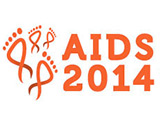 Zamibian men who get circumcised as a part of a public health effort to reduce HIV risk do not seem to engage in riskier sexual behaviors as a result, aidsmap reports. Researchers recruited 2,333 men between the ages of 15 and 29 in the southern African country for a prospective, population-based cohort study in which the men were interviewed every two years about their sexual risks. Interim results were presented at the 20th International AIDS Conference (AIDS 2014) in Melbourne, Australia.
Zamibian men who get circumcised as a part of a public health effort to reduce HIV risk do not seem to engage in riskier sexual behaviors as a result, aidsmap reports. Researchers recruited 2,333 men between the ages of 15 and 29 in the southern African country for a prospective, population-based cohort study in which the men were interviewed every two years about their sexual risks. Interim results were presented at the 20th International AIDS Conference (AIDS 2014) in Melbourne, Australia.
Research has found that circumcision reduces the risk of female-to-male HIV transmission by about 60 percent. As a result, there has been a massive push in recent years to circumcise men in Africa, where the vast HIV epidemic is predominantly heterosexual. Skeptics, however, have worried that men will engage in behaviors that increase their risk of HIV infection following a circumcision—a phenomenon known as risk compensation.
The researchers have thus far completed three rounds of interviews: the first in 2010 and 2011, the second in 2011 and 2012, and the third in 2012 and 2013, with about 81 percent of the first-round participants returning through the third round. The investigators determined the proportion of the men who were having sex without a condom, the number having two or more sexual partners annually, the number diagnosed with a sexually transmitted infection (STI), and the number who had paid for sex; researchers also looked at the link between alcohol use and sex.
At the study’s outset, 5 percent of the men were circumcised. By the second round, 12 percent were, and by the third 21 percent had been circumcised.
Because the study was not randomized the findings may have been thrown off one way or another. Men who elected to be circumcised may have been more intrinsically inclined toward risky behaviors, or perhaps they were less inclined, thus over- or underestimating, respectively, any evident risk compensation.
On some counts, the men’s behavior swayed toward risk compensation, but on others the men engaged in less risk of acquiring HIV. However, the shifts were relatively small, and for the most part they were not statistically significant, meaning the apparent difference could have occurred by chance. So the researchers concluded that, on the whole, circumcision has not led to risk compensation among these men.
To read the conference abstract, click here.
To read the aidsmap story, click here.
Advertisement
Advertisement
Advertisement






Comments
Comments